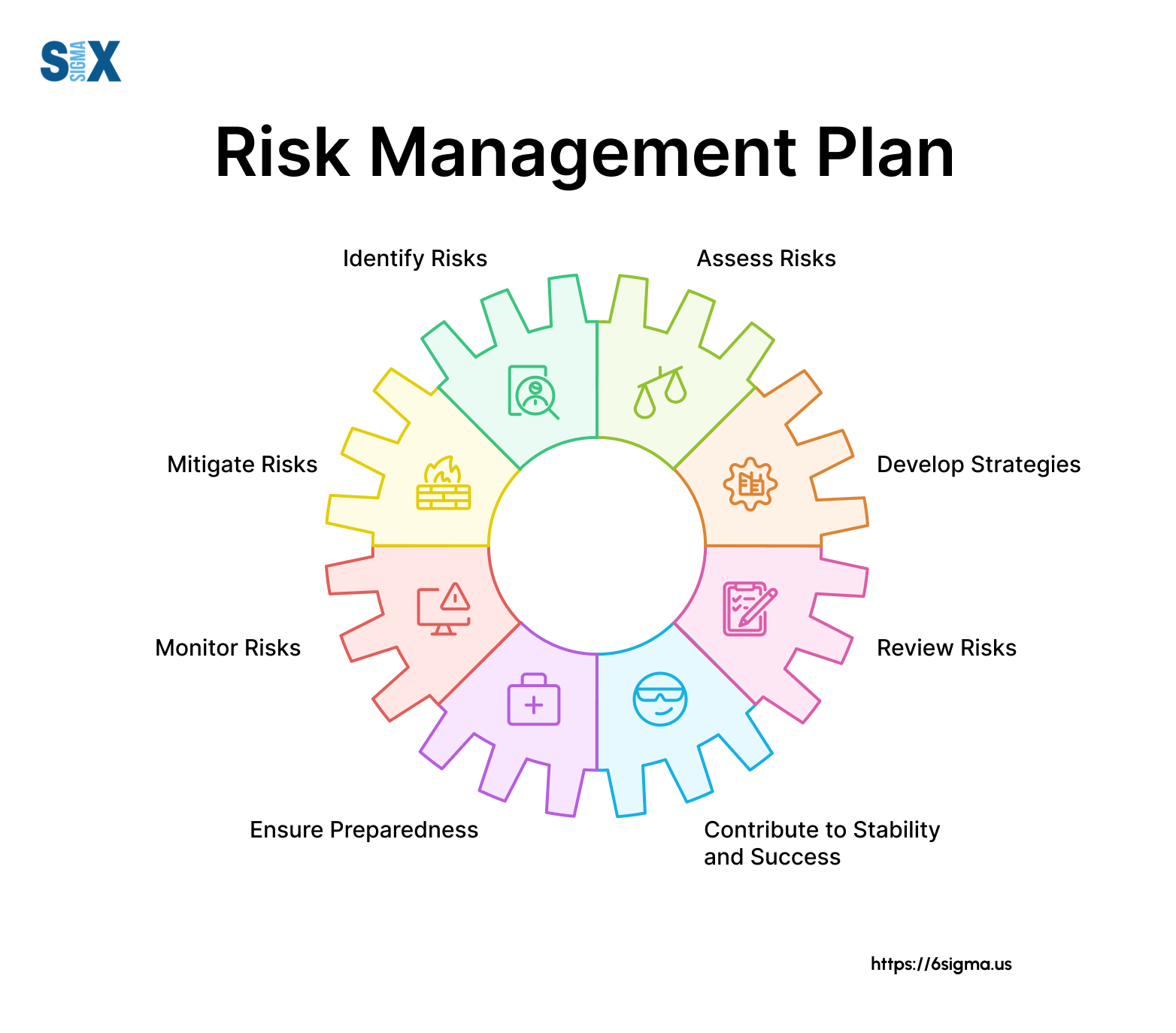A Detailed Guide to Understanding the Importance of Risk Management
Wiki Article
The Essential Value of Risk Management in Achieving Business Objectives
In the swiftly progressing business landscape, the capability to navigate uncertainty has ended up being a critical. This is where Risk Management action in, offering a structured method to identifying, assessing, and mitigating potential barricades to advance. It's greater than just a safety measure - it's a critical device, cultivating durability and development. As we discover the vital duty of Risk Management in accomplishing organizational objectives, one can not help yet wonder: how does this translate right into real-world success?Understanding the Idea of Risk Management in Organization

The Important Role of Risk Management in Strategic Preparation
Incorporating Risk Management into strategic preparation acts as a safeguard for companies, anchoring their long-term plans with a strong structure of preparedness and resilience. It runs as the company's radar, spotting prospective threats and vulnerabilities that might interfere with the path towards achieving their stated goals. Risk Management uses a framework for anticipating uncertainties and devising ideal reactions, ensuring the company's survival and success also when faced with misfortune. By including Risk Management into critical planning, companies can transform these uncertainties into chances for development and innovation. This strategic interweaving of Risk Management promotes adaptability, making organizations a lot more durable and enabling them to navigate the ever-changing company landscape confidently. Risk Management comes to be an essential tool in critical planning, crucial in protecting sustainable success.
Techniques for Identifying, Assessing, and Prioritizing Threats
The procedure starts with Risk identification, utilizing devices such as SWOT analysis, which aids in identifying prospective hazards and chances. Next off, Risk evaluation is performed to ascertain the possible impact and likelihood of each Risk. Threats are prioritized based on their possible effect and probability, allowing organizations to concentrate their resources on critical dangers.Guarding Business Procedures Through Reliable Risk Management
In business landscape fraught with unpredictabilities, reliable Risk Management plays a critical function in securing business procedures. It works as a protective shield, alleviating the damaging results of prospective threats and making certain the smooth performance of all procedures. By recognizing and assessing potential dangers, Risk Management enables companies to establish robust backup plans. This precautionary approach aids in maintaining functional stability, even when challenged with unexpected circumstances. Fundamentally, Risk Management is the lifeline that maintains the business operations afloat amidst unstable waters. It makes certain not important link only the survival however the sustainable development of a company, making it an indispensable tool in attaining service objectives. Companies have to invest in thorough Risk Management strategies to protect their operations.
Converting Prospective Dangers to Opportunities: The Power of Risk Management
While potential threats may originally look like obstructions to business success, reliable Risk Management can transform them right into possibilities. An aggressive method to run the risk of Management entails identifying, analyzing, and prioritizing dangers to design methods that transform them right into potential benefits. This procedure demands the growth of a risk-aware society within the organization, encouraging individuals to see risks as possible drivers for modification and development, as opposed to mere dangers. importance of risk management. With this lens, prospective hazards end up being possibilities to introduce, enhance processes, and enhance resilience. Therefore, by leveraging the power of Risk Management, companies can not just protect their operations however likewise spur development and achieve their objectives in an unforeseeable company atmosphere.Situation Studies: Success Stories of Risk Management Driving Business Objectives
Effective execution of Risk Management strategies has produced outstanding outcomes in various organizations, emphasizing the qualities of this technique. International business like Microsoft and Google, for circumstances, have leveraged Risk Management to decrease threats and make use of chances, driving their company objectives onward. Microsoft's aggressive Risk Management method helped look at this site it pivot quickly throughout the 2020 pandemic, transitioning to remote job efficiently, consequently keeping productivity. Google, by assessing and alleviating potential threats in its cloud-based solutions, has actually ensured nonstop service, thus reinforcing client depend on. here are the findings These instances illustrate how effective Risk Management can not only steer companies free from prospective mistakes however also direct them towards their strategic objectives. Hence, Risk Management is integral to the quest of organizational goals.
Final thought
Finally, Risk Management is essentially critical in accomplishing organizational goals. It uses a systematic method to recognizing, analyzing, and resolving potential dangers and opportunities. Greater than simply mitigating dangers, it additionally promotes advancement, durability, and lasting development. By integrating Risk Management right into strategic planning, businesses can much better navigate unpredictabilities, protect procedures, and capitalise on opportunities, therefore straightening with lasting goals.At its core, Risk Management is the process of determining, analyzing, and dealing with possible threats that could adversely influence a company's purposes or operations. Next, Risk evaluation is carried out to identify the possible influence and probability of each Risk. Threats are prioritized based on their possible impact and possibility, enabling organizations to concentrate their resources on high-priority dangers. By identifying and examining potential hazards, Risk Management allows organizations to develop durable contingency strategies. A proactive technique to risk Management entails determining, analyzing, and prioritizing threats to create approaches that transform them into possible benefits.
Report this wiki page